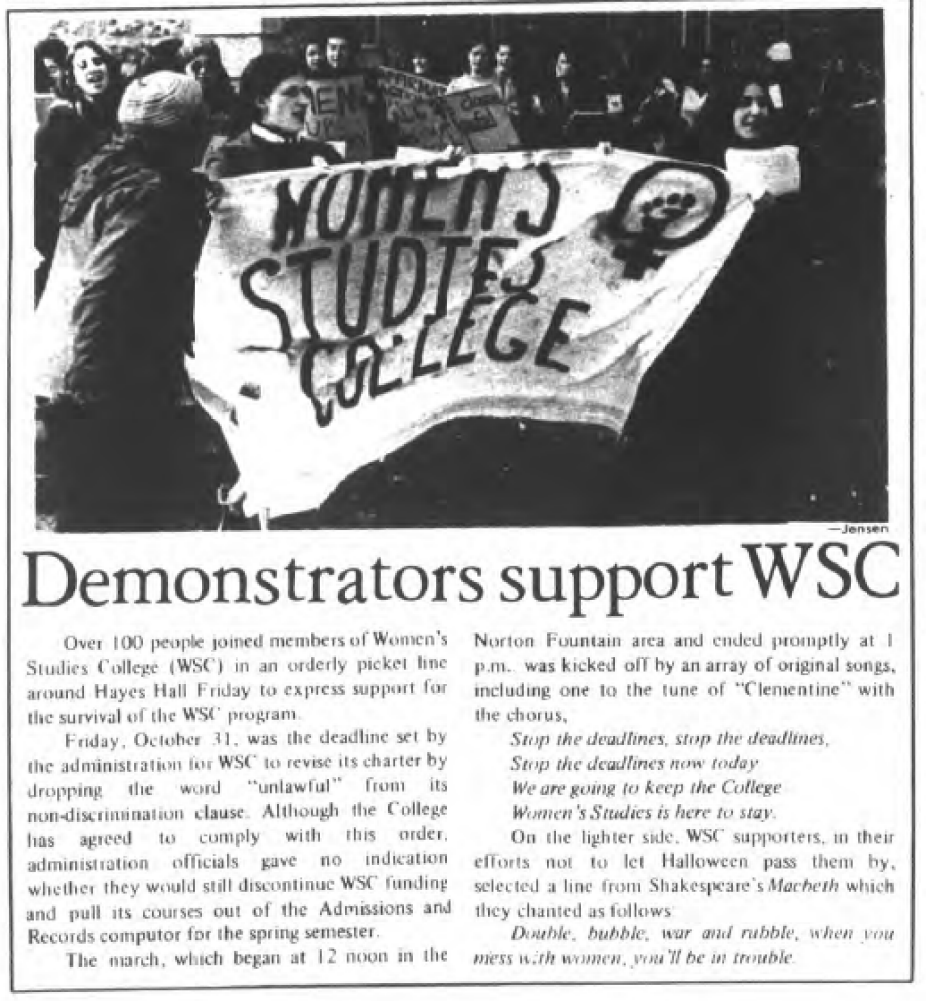Department Announcement: 50th Anniversary Introduction
In 1972, Christine Grahl, Elizabeth Kennedy, Lillian S. Robinson and Bonnie Zimmerman explained the founding of the Women’s Studies College (WSC) in an article published in Feminist Studies: “the women’s studies college rests on the principle that women are not passive objects to be studied, analyzed and categorized, but active subjects in a historical process….We realized that it was no accident that women—even as passive subject—were usually omitted from the scope of traditional academic inquiry, and that undertaking to study our own situation therefore directly challenged the basic premises of existing education and the system it serves.” (Feminist Studies, 1972, 1:2 (1972), 109-120).

This vision took the University at Buffalo by storm, inspiring graduate and undergraduate students, faculty, staff, and community members to dedicate time and energy to a novel experiment in women learning and creating new knowledge together. WSC became the home for courses—often student led on—a range of topics, including “Women in Contemporary Society” (taught by an undergraduate teaching collective to over 200 students in the first year), “Black and Female: A Workshop in Black Women’s Liberation,” “The Politics of Health,” “Sex, Race, Class and the Oppression of Women,” “Theories of Feminism,” and “Lesbianism 101.” WSC sought to democratize knowledge by reaching out to community members such as the YWCA, and sought to provide resources to Buffalo high school teachers and students on women’s lives.
These revolutionary courses provided new knowledge not only for UB students, but paved the way for the field of women’s and gender studies nationwide as focused on exposing the intersection of different forms of material oppression in diverse women’s lives, and the importance of centering knowledge produced by and for women. In the WSC, “there is above all a commitment to taking active control of our lives, sharing the many skills that traditional education and a sexist society have denied us, becoming strong and confident enough to shape our future within and beyond the university.”
While the radical experiment of the WSC ended with the suspension of UB’s collegiate system in 1982 , the impact of its revolutionary vision continues in the classes, faculty and students of Global Gender and Sexuality Studies. Our lives continue to be shaped by the knowledge generated by taking seriously the diversity of women and sexual minorities as active subjects. We hope to highlight the legacy of early activists and how their groundbreaking work continues to impact not only UB, but the discipline of women’s, gender, and sexuality studies. I hope our continuing commitment to the radical ideals of the WSC will guide us for the next 50 years.